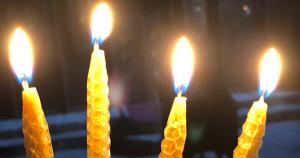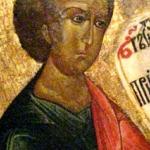 I asked for new voices and Jake Carr stepped up . . . Mr. Carr graduated from Biola University and the Torrey Honors Institute in 2015. His is currently working towards a PhD in Philosophy and Education at Teachers College, Columbia University. Learning and teaching are his greatest loves, save only the love for his wife, Dawnielle, and his son, Rémi.
I asked for new voices and Jake Carr stepped up . . . Mr. Carr graduated from Biola University and the Torrey Honors Institute in 2015. His is currently working towards a PhD in Philosophy and Education at Teachers College, Columbia University. Learning and teaching are his greatest loves, save only the love for his wife, Dawnielle, and his son, Rémi.
Mr. Carr take the wheel:
The following quotation is from Readings in Classical Chinese Philosophy, edited by Philip J. Ivanjoe and Bryan W. Van Norden.
Analect 6.3
Duke Ai asked [Confucius], “Who among your disciples might be said to love learning?”
Kongzi [Confucius] answered, “There was one named Yan Hui who loved learning. He never misdirected his anger, and never made the same mistake twice. Unfortunately, his allotted lifespan was short, and he has passed away. Now that he is gone, there are none who really love learning – at least, I have yet to hear of one.”
No school should exist without a Yan Hui award. Any student worthy of it would outshine the Valedictorian a hundred fold.
Confucius gives two signs by which we can recognize the true love of learning. Yan Hui had both. He never misdirected his anger, and he never made the same mistake twice.
Misdirected anger?
Any instance of anger involves 1) A judgement that sees a particular act as wrong, 2) A painful disturbance of feelings, and 3) A desire for vindicatio, where vindicatio is understood to be pursuit of redress, or punishment.
In order to never misdirect anger, Yan Hui must have always judged the just and the unjust correctly. Only a soul profoundly committed to what is good and true could ever arrive to such a state. Only a soul distinctly unselfish could ever have the purity of mind to track the just and the unjust in this way. Confucius suggests that it was love of learning that brought Yan Hui to the good, the true, and the just. No one who misdirects their anger has the true spirit of learning in them. Only those who retain the spirit of learning remain open to what’s good, true, and just, despite what the broken world with its broken people may do to them.
Yan Hui never made the same mistake twice.
Having made the same mistakes thousands of times, I called down the label of “perfectionism” on this sentiment. But that was wrong. The text says nothing of the attempt to be perfect rooted in self-will, self-shame, and external posturing. It says that when Yan Hui made a mistake, he never made it again. The perfectionist always makes the same mistakes. Instead of progress through the mistake they merely hate themselves more for having made it. They can only imagine progress in terms of becoming a new, different, better person defined in disconnect from their wrongs.
The love of learning was manifest in Yan Hui in that he was fully open to the truth of his wrongs, regardless of how painful it might have been to accept what it meant about him. I’ve seen how hard it is for someone to accept that they, yes they have committed sexual assault. They would have done anything to not use those two words in conjunction with themselves. They were as afraid of admitting to the act as to what it might mean about who they were. The true spirit of learning fully perceives and accepts the truth of one’s failings without qualification.
Still Yan Hui went further.
Not only was Yan Hui open to the truth of his wrongs, he remained open to the truth of them.
To never make the same mistake again, Yan Hui engaged in an active recalling of the truth about himself. He moved through his life in the light of what he knew his failings were. Many of us repeat the same sins, the same faulty thought patterns, or the same relational mistakes. It’s usually after a committed wrong that one wonders, “How do I find myself here again?” We are surprised and puzzled, like somebody who wakes up from an unplanned stupor. The truth is, we are unwilling to remain awake to the truth through an active memory. The spirit of true learning desires to keep every discovered truth close to one’s heart and mind. If one can continuously recall and remain open to the truth, its power can guide.
Last, Yan Hui maintained a willingness to change. Without the willingness to change, one can never be said to love learning. Our learning is evidenced by our deeds lining up with what we know, and we always allude to knowing more than our practices testify to. But not Yan Hui. We know Yan Hui loved learning precisely because his practices continued to align with what he took to be the true and the just.
In his time, Yan Hui was the only person who truly could be said to love learning. His profound openness to what was true and just gave him the power to never misdirect his anger. His profound acceptance and recollection of the truth of his mistakes, combined with a willingness to change in accordance to them, gave him the power to never make the same mistake twice. Only a great love of learning could have brought about these things.
It may be that no student in our generation will love learning as Yan Hui did. But if the student should arrive, any community of learning should be prepared to give them the highest honors













